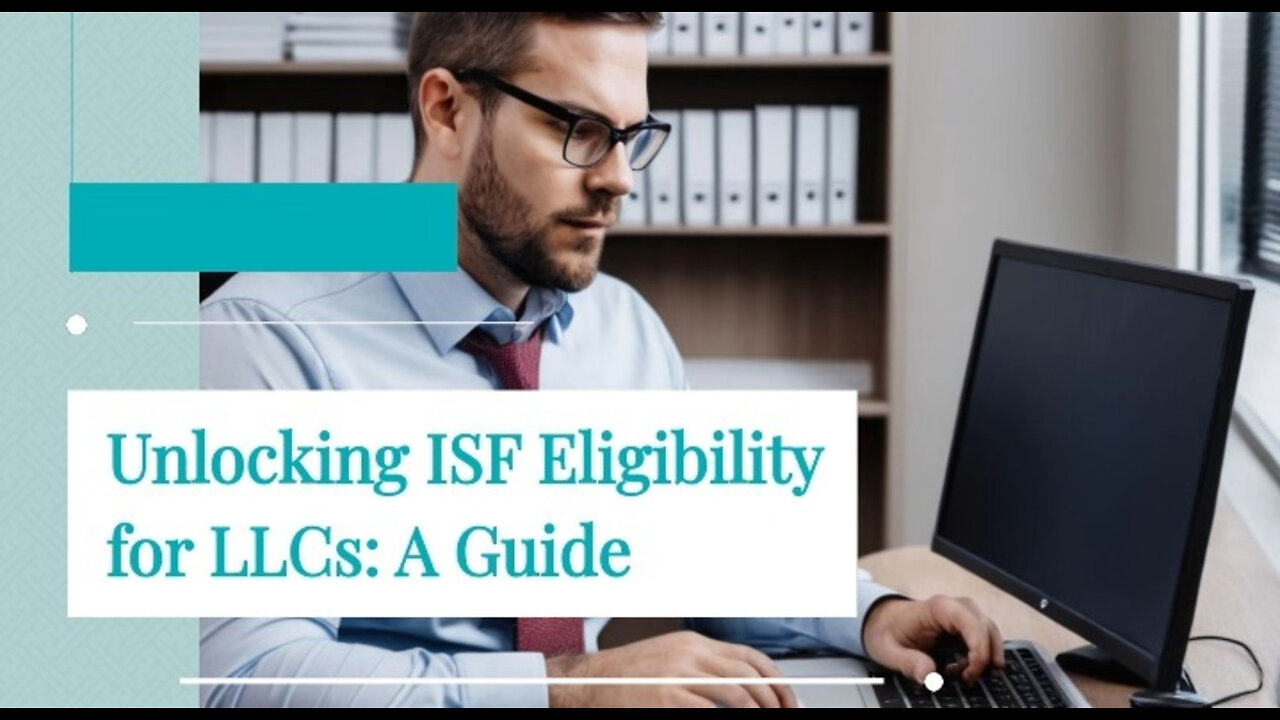Premium Only Content

Demystifying ISF Eligibility for LLCs: Key Requirements and Bond Compliance
* ISF Expert
* Phone: 505-359-0963
* Email: info@isfexpert.com
* https://isfexpert.com
In this video, we delve into the topic of ISF eligibility for limited liability companies (LLCs) in the context of customs brokerage. We begin by providing a brief overview of LLCs and their appeal as a business structure. We then emphasize the significance of ISF filings in enhancing supply chain security and highlight the potential consequences of non-compliance. Next, we discuss the eligibility criteria for LLCs to file ISF, emphasizing the requirement of being based in the United States or having a registered agent within the country, as well as the necessity of possessing a valid IRS Employer Identification Number (EIN). Furthermore, we touch upon the CBP bond requirements for LLCs, emphasizing the need to obtain a continuous bond. Finally, we stress the value of partnering with a licensed customs broker to navigate the intricacies of customs regulations and ensure seamless clearance of goods. Overall, our aim is to provide viewers with a comprehensive understanding of ISF eligibility for LLCs and the importance of complying with customs regulations.
#usimportbond
#isfcustomsbroker
#uscustomsclearing
#isfentry
Video Disclaimer Here: For educational purposes only, No connections to any US government organization.
00:28 - LLCs must meet specific criteria to be eligible to file Importer Security Filings (ISF) with U.S. Customs and Border Protection.
1:17 - An LLC must be based in the United States or have a registered agent within the country, and have a valid IRS Employer Identification Number (EIN) to qualify for ISF filing.
1:47 - LLCs must also comply with CBP's bond requirements, generally needing a continuous bond to ensure payment of import duties, taxes, and penalties.
2:09 - Working with a licensed customs broker is recommended for LLCs to navigate customs regulations, including ISF filings and customs bond requirements, to ensure smooth clearance of goods through customs and avoid penalties and delays.
-
 LIVE
LIVE
Dr Disrespect
2 hours ago🔴LIVE - DR DISRESPECT - MARVEL RIVALS - LOSING MY MIND
3,252 watching -
 1:57:57
1:57:57
The Charlie Kirk Show
2 hours agoTrump's Colombia Masterclass + The Brilliance of VP Vance | Sen. Scott | 1.27.2025
61.1K12 -
 1:08:43
1:08:43
Grant Stinchfield
2 hours ago $1.52 earnedThis is What Leadership Looks Like... America First, Criminals Last!
15.1K7 -
 DVR
DVR
Game On!
2 hours agoThe Super Bowl America Deserves! | Crick's Corner
4.55K2 -
 2:04:10
2:04:10
LFA TV
1 day agoICE ICE BABY! | LIVE FROM AMERICA 1.27.25 11am
48.6K35 -
 1:01:03
1:01:03
The Dan Bongino Show
4 hours agoThe Rock-'Em-Sock-'Em Presidency (Ep. 2409) - 01/27/2025
597K940 -
 1:09:08
1:09:08
The Rubin Report
3 hours agoStephen A. Smith Makes Makes Bill Maher Go Quiet with His Scorching Attack on Democrats
68.3K41 -
 2:01:00
2:01:00
Steven Crowder
5 hours agoWe are So Back: How Trump Flexed American Muscle and Owned Colombia
353K213 -
 1:28:04
1:28:04
Caleb Hammer
3 hours agoHomewrecker Ruins EVERYTHING To Steal Married Old Men | Financial Audit
24.3K6 -
 1:28:49
1:28:49
The Shannon Joy Show
3 hours ago🔥🔥Bobby Kennedy Goes To Washington! Can He Tame The PHARMA Giant & STOP mRNA Expansion?🔥🔥
22.3K